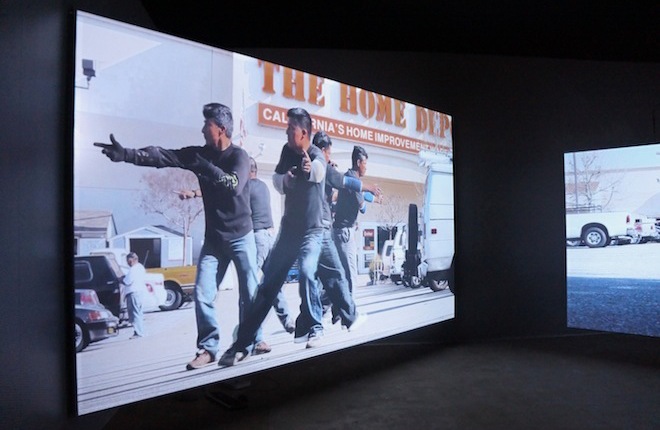By STEVE AISHMAN
"The modernist age, of "one way, one truth, one city," is dead and gone. The postmodernist age of "anything goes" is on the way out. Reason can take us a long way, but it has limits. Let us embrace post-postmodernism - and pray for a better name."-Tom Turner, City as Landscape, 1986
Some people are not interested in finding out how things work. They go through life, and it never even occurs to them to wonder how their car works or how democracy works or anything else and that's fine for them. I love learning how things work and not for any reason. I just love learning. And I have a feeling that if you are reading this, you love learning for no specific reason as well.
One thing I am interested in learning about is how I and other people in my culture perceive their own existence. So here is a brief and severely dumbed-down history of how philosophy has developed in the West over the past 200 years and a where I think it has brought us. If you already know this history, you can skip to the end:
In the 18th century, the Western world shifted philosophy and turned away from what was perceived as the superstitions and tyranny that defined the Middle Ages. During the Enlightenment, philosophers began to believe that individuals were rational, autonomous beings who were free to shape their own world. With this change in philosophy, came the rise of modern capitalism, contemporary notions of democracy, and many other social changes that were all based in the notion that humans are free and logical beings. Enlightened thinking, with its basis in rationality, is at the core of modernism and hence modern art.
After WWII, many people, like Adorno and Horkheimer, began to argue that the Enlightenment had been a failure as exemplified by the events leading to twentieth century totalitarianism. This opened the door for philosophers like Derrida and Lyotard to argue that some of the underlying assumptions made by the Enlightenment were incorrect. They argued that individuals are not inherently free, but are actually defined by societal forces. Other people (philosophers, linguists, artists, etc.) picked up the tools of analysis that post-structuralists were using (deconstruction, etc.) and applied them to their own critiques of the Enlightenment. In the art world, we call any critique of the basic assumptions of the Enlightenment "post-modernism".
Subsequently, there are many post-modernisms (such as feminism, post-colonialism, etc.) because by definition, anyone who did not adhere to modernist beliefs fell under the group classification of "post-modernist" regardless of their stance. The one thing that seems to unite all of the critiques of Enlightened thought is a rejection of what is perceived as the Enlightenment's perversion of reason. In other words, post-modernisms do not abandon reason entirely, but rather, they complicate Enlightened thought by questioning the scope, meaning and application of reason.
This brings us to the state of philosophy today. The current dialog lacks a coherent name, but the basic idea is that the hierarchies of modernism were dangerous and we don't want to return to them. However, post-modernism has framed the world as nothing more than a spectacle where the viewer is immobilized and never knows what is real, and where the pursuit of meaning is pointless.
To solve this philosophical problem, Mikhail Epstein discusses "Potentiation" that moves beyond deconstruction to finally get to the original point of deconstruction, which was to dismantle structures in order to be able to better assemble new structures. Some philosophers, Raoul Eshelman in particular, are currently assembling new structures like the notion of "Performatism" where individuals perform acts knowing full well they are limited in scope, but the act is no longer a sign that creates or generates meaning - the meaning is in the act itself.
Alan Kirby describes this new philosophy of the world by demonstrating the difference between a book like "A Tale of Two Cities" and cultural product like "American Idol". "A Tale of Two Cities" exists materially whether or not someone reads it, but "American Idol" could not exist if no one called in to vote for contestants. This cultural effect can be seen in radio call-in shows, home shopping networks, news channels that run user submitted images, etc. In this next stage of philosophy, the viewer bears the responsibility for the meaning of the moment.
Thus, in many ways, there has been a return to the core concept of the Enlightenment: the power of the individual, but with a post-modern understanding that that power has exceptional responsibility and severe limitations.
Writing in 2006, Alan Kirby goes on to point out that this new philosophy has so far produced a cultural desert, but that this new philosophy should soon be used for meaningful artistic expression.
In the last issue of Big Red, I wanted to put this "Performatism" to the test and I put together a poll of what foods people like to have provided at art openings. To a large extent, I did not write a column at all, nor did I try to. The column required individuals to perform the column for no rational reward.
I had 208 votes, which I find impressive because I had no idea that many people read my column.
The results can be seen if you click on the poll in the last issue, but here are the top votes:
Item Votes % Beer 20 10% Wine in glasses 20 10% Crackers 16 8% Water in bottles 16 8%
For write in votes I had:
is this seriously a fucking article?
shots
weed
chocolate fondue fountain w/ fruit on sticks
olives
sex, drugs and rock'n'roll
Thanks to everyone who helped write my column last issue!
I hope you thought it was interesting (especially now that you know why I was doing it) and please add to this issue's article by leaving a note in the comment section. In fact, please actively participate in the writing of all of the Big Red articles by leaving a comment.
To the person who took the time to read last month's column, and then took the time to participate in writing the article by choosing "Other" and then typing in "is this seriously a fucking article?":
Yes, it is.



